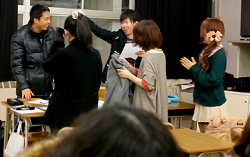The Brain’s Lifelong Growth
![The developmental web: Skills grow and connect like branches, creating a complex network in your brain. [Fischer, 2003 & 2009] The developmental web: Skills grow and connect like branches, creating a complex network in your brain. [Fischer, 2003 & 2009]](/images/developmental-web600.jpg)
Your brain isn’t fixed—it’s dynamic, constantly rewiring itself based on what you learn and experience. This ability, called neuroplasticity, allows adults to form new neural connections throughout life. A 2021 study by Lindenberger and Lövdén in the Annual Review of Psychology found that engaging in new activities, like learning a language or playing an instrument, strengthens these connections, especially in the prefrontal cortex (decision-making) and hippocampus (memory). This challenges the old idea that adulthood is a period of decline.
Neuroscientist Kurt Fischer’s (2003, 2009) dynamic skills theory offers a helpful way to understand this. Instead of developing in rigid stages, your brain grows like a tree, sprouting new branches of skills in areas like language, logic, or creativity. Each new skill builds on existing ones, forming a complex developmental web. A study by Voss et al. (2023) supports this, showing that adults who tackle challenging tasks—like mastering a new hobby—create stronger neural networks, especially when guided by teachers or mentors.


![Your brain can keep growing, adapting, and learning at any age, if you are willing to put in the effort [Image: Copilot] Your brain can keep growing, adapting, and learning at any age, if you are willing to put in the effort [Image: Copilot]](/images/Images/best-years-for-adult-brain600.png)


![Your brain can keep growing, adapting, and learning at any age, if you are willing to put in the effort [Image: Copilot]](/images/Images/best-years-for-adult-brain300.png)

